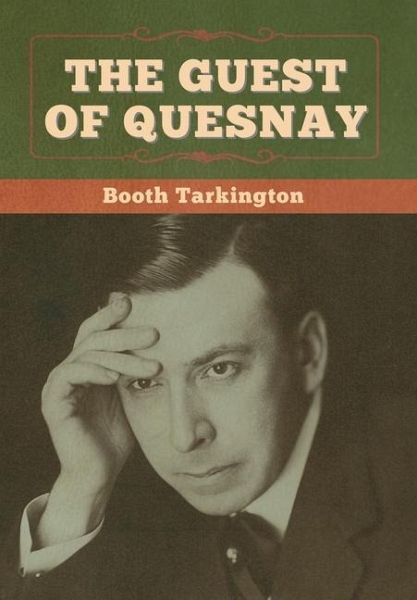
The Guest of Quesnay
Versandkostenfrei!
Versandfertig in über 4 Wochen
28,99 €
inkl. MwSt.

PAYBACK Punkte
14 °P sammeln!
Newton Booth Tarkington (July 29, 1869 - May 19, 1946) was an American novelist and dramatist best known for his novels The Magnificent Ambersons and Alice Adams. He is one of only four novelists to win the Pulitzer Prize for Fiction more than once, along with William Faulkner, John Updike, and Colson Whitehead. Although he is nearly forgotten today (2020), in the 1910s and 1920s he was considered America's greatest living author. Several of his stories were adapted to film. During the first quarter of the 20th century, Tarkington, along with Meredith Nicholson, George Ade, and James Whitcomb ...
Newton Booth Tarkington (July 29, 1869 - May 19, 1946) was an American novelist and dramatist best known for his novels The Magnificent Ambersons and Alice Adams. He is one of only four novelists to win the Pulitzer Prize for Fiction more than once, along with William Faulkner, John Updike, and Colson Whitehead. Although he is nearly forgotten today (2020), in the 1910s and 1920s he was considered America's greatest living author. Several of his stories were adapted to film. During the first quarter of the 20th century, Tarkington, along with Meredith Nicholson, George Ade, and James Whitcomb Riley helped to create a Golden Age of literature in Indiana. Booth Tarkington served one term in the Indiana House of Representatives, was critical of the advent of automobiles, and set many of his stories in the Midwest. He eventually removed to Kennebunkport, Maine, where he continued his life work even as he suffered a loss of vision. In the 1910s and 1920s, Tarkington was regarded as the great American novelist, as important as Mark Twain. His works were reprinted many times, were often on best-seller lists, won many prizes, and were adapted into other media. Penrod and its two sequels were regular birthday presents for bookish boys. By the later twentieth century, however, he was ignored in academia: no congresses, no society, no journal of Tarkington Studies. In 1985 he was cited as an example of the great discrepancy possible between an author's fame when alive and oblivion later. According to this view, if an author succeeds at pleasing his or her contemporaries -- and Tarkington's works have not a whiff of social criticism -- he or she is not going to please later readers of inevitably different values and concerns. (wikipedia.org)














